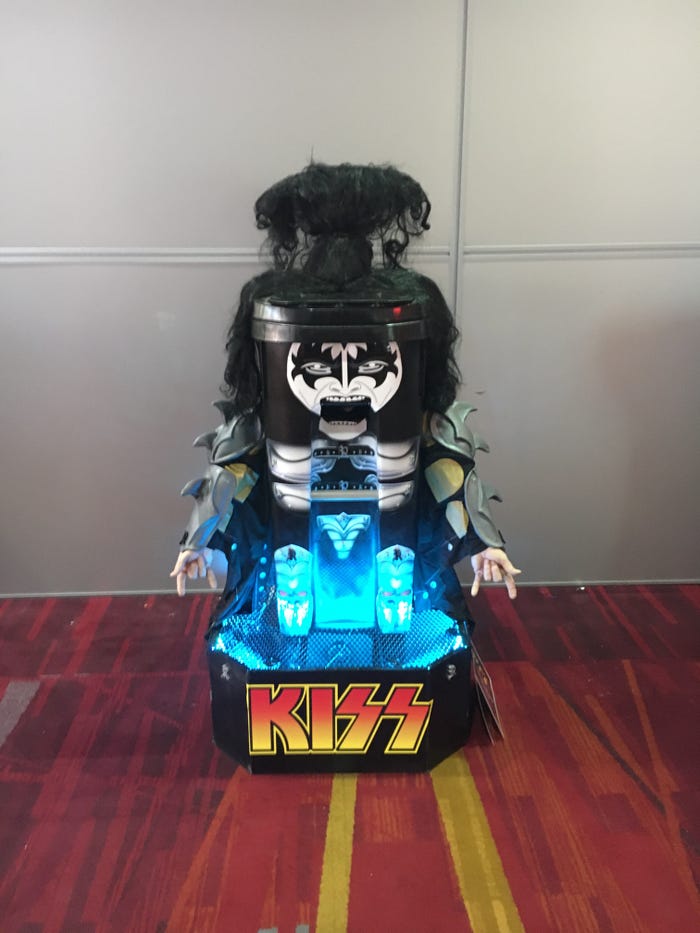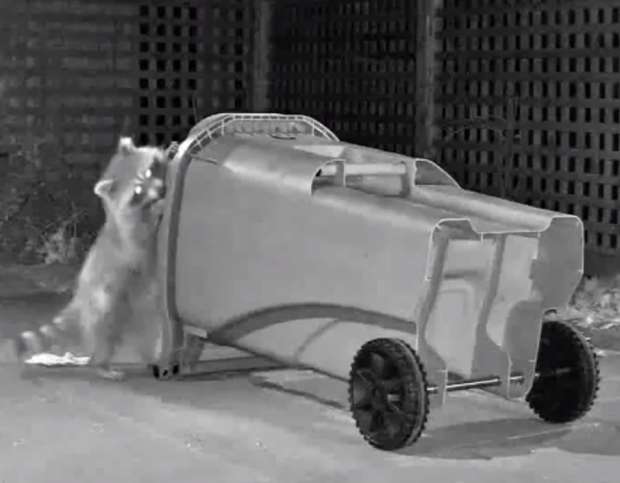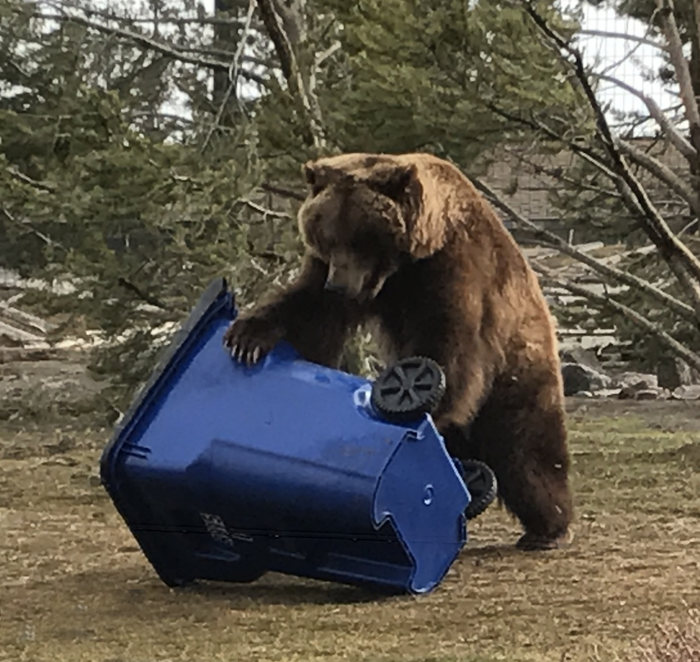Rehrig Pacific’s Foster Gives Garbage Carts Curb Appeal
The Waste360 40 Under 40 award winner shares how he got his start in the industry and how he has seen technology change product design.
Combining creativity, talent and passion, Derick Foster develops effective and efficient garbage and recycling carts for the industry. Working as the environmental project leader at Rehrig Pacific, Foster takes his ideas and turns them into artistic (and functional) masterpieces, all while keeping up with the needs and demands of the company’s client base.
Foster has worked at Rehrig Pacific for nine years and is responsible for end-to-end design solutions and development leadership for the company’s environmental group. From designing bear- and raccoon-resistant carts to quirky carts for the National Waste & Recycling Association Women’s Council Carts on Display competition, Foster raises the bar for innovative cart design.

“Derick's unique skillset and drive to move our industry forward with innovative designs is invaluable,” says Scott Lukach, vice president of environmental at Rehrig Pacific. “As a young professional in our industry, his innovative designs are only scratching the surface in his pursuit for a safer and more productive industry and eloquent products.”
Waste360 recently spoke with the Waste360 40 Under 40 award winner about how he got his start in the industry and how he has seen technology change product design over the years.
Waste360: How did you begin your career in the waste and recycling industry?
Derick Foster: Nine years ago, I was hired at Rehrig Pacific as an industrial designer, and after one year of working there, I took on my first environmental project. During that time, leadership saw that I had a knack for the products in that industry and that I meshed well with the people in that industry—the haulers, various suppliers, customers, etc. It was a natural fit, and it quickly became my focus for the next eight years.
Since I was a child, I have always been a creative, hands-on person. I took every hands-on class you could get into—art class, metal shop, wood shop, automotive, you name it. When I went to college, I discovered a program called industrial design, and it was a good fit for my passion and natural talent. I always say when I was in college that I knew I would do something someday with wheels. I always thought I would get into car or motorcycle design, and I never thought I would get into garbage and recycling cart design. I am glad I got into this industry though, and I really enjoy seeing things I’ve designed out in front of people’s homes. It’s a guilty pleasure for me.
Waste360: Tell us about your role as environmental project leader.
Derick Foster: My day-to-day duties include working with our customers, which are haulers all over the U.S., both big and small and private and public. I answer questions about their products and spitball ideas about what we can do and what we are working on so that I can get feedback for concept development. I then take those ideas and blow them out to find unique solutions to solving problems.
I also use a variety of software packages each day to make 3D models, engaging presentations, prototypes, etc. A good example of that is when we developed the raccoon-resistant organics cart for the City of Toronto. I built a variety of small prototypes and tested them with raccoons out in the field. I then troubleshooted any problems we had to make the product the best it could possibly be.

Waste360: As the industry changes and evolves, how have you seen design trends change?
Derick Foster: The one thing I can really point to is that products are becoming more innovative in the solutions that they are offering. A big part of the younger generation is coming into the industry now, and they are bringing new ideas to the table.
One thing I have helped influence over the years is bringing a more consumer-friendly look and feel to some of the products in the field. Garbage carts often have a very rigid and hard-engineered look, but we have softened that look and given them a more user-friendly aesthetic. I want my garbage carts to have “curb appeal,” and I want them to look good in front of a home. A garbage cart may just be a garbage cart to some, but to me it’s a work of art and something that can be sexy and modern.
Waste360: How is technology playing a role in design?
Derick Foster: Everyone is looking to make products smart, and I think technology and products is a great marriage. Smart products can help companies be more efficient, but from a logistics standpoint, it can be a big benefit for asset tracking.
One of the biggest challenges with smart products, however, is figuring out how to design the products so that they can withstand everything that comes with this industry, from the elements to the abuse of being moved around a lot.

One way to combat this challenge is to bring technology in during the early design stages so that we can see how to integrate technology into the product in a stylish way instead of trying to hide it all the time. When you think of all the components at once, it makes for a cleaner and more efficient design.
Technology is one of the areas that Rehrig is investing a lot of time and money in. We are in the process of developing an innovation sensor where we are able to test different applications of technology in our products, which is exciting and cool from a design standpoint. We are looking at what other industries are doing and figuring out if it’s something that we can integrate in our industry. We are innovative and want to think outside the box, and having the opportunity to do research, development and prototype testing allows us to do just that.
Waste360: What has been your biggest design challenge in your career thus far?
Derick Foster: Probably the bear cart that we just brought to the market this year because I had to design a product that could withstand the strength of a powerful animal and balance the needs and wants of our customer base. The product had to be light enough for trucks, workers and customers to move but durable enough to hold up to years of curbside service and abuse from bears.
I shine my best when I am presented with a challenge like that, and I often go into overdrive and react well to a challenge versus running away from it. I mean, it’s not every day that you get to go into Yellowstone National Park and watch bears beat up your product and try to get into it.
Waste360: If you weren’t in this industry, what do you think you would be doing?
Derick Foster: My passion is in the automotive world. I am a hobbyist and build classic cars and motorcycles for myself, so I think that’s where I would have ended up. I have a thing for anything with wheels, but as an industrial designer, I am happy to be developing products that will impact the future and better the environment for generations to come. I hope other designers will be inspired by the work I’ve done and take it even further to make a bigger impact.
Waste360: What advice would you give to someone looking to have a career in the waste and recycling industry?
Derick Foster: Be yourself, be outgoing, don’t be afraid to try new things and don’t be afraid to speak your mind. The people I have met over the last nine years are honest, open-minded and friendly, and it’s really those people who make this industry grow and shine. Check your ego at the door because at the end of the day, we’re all garbage guys and you have to have a little bit of a quirk in you to be proud that you’re a garbage man.
About the Author(s)
You May Also Like




